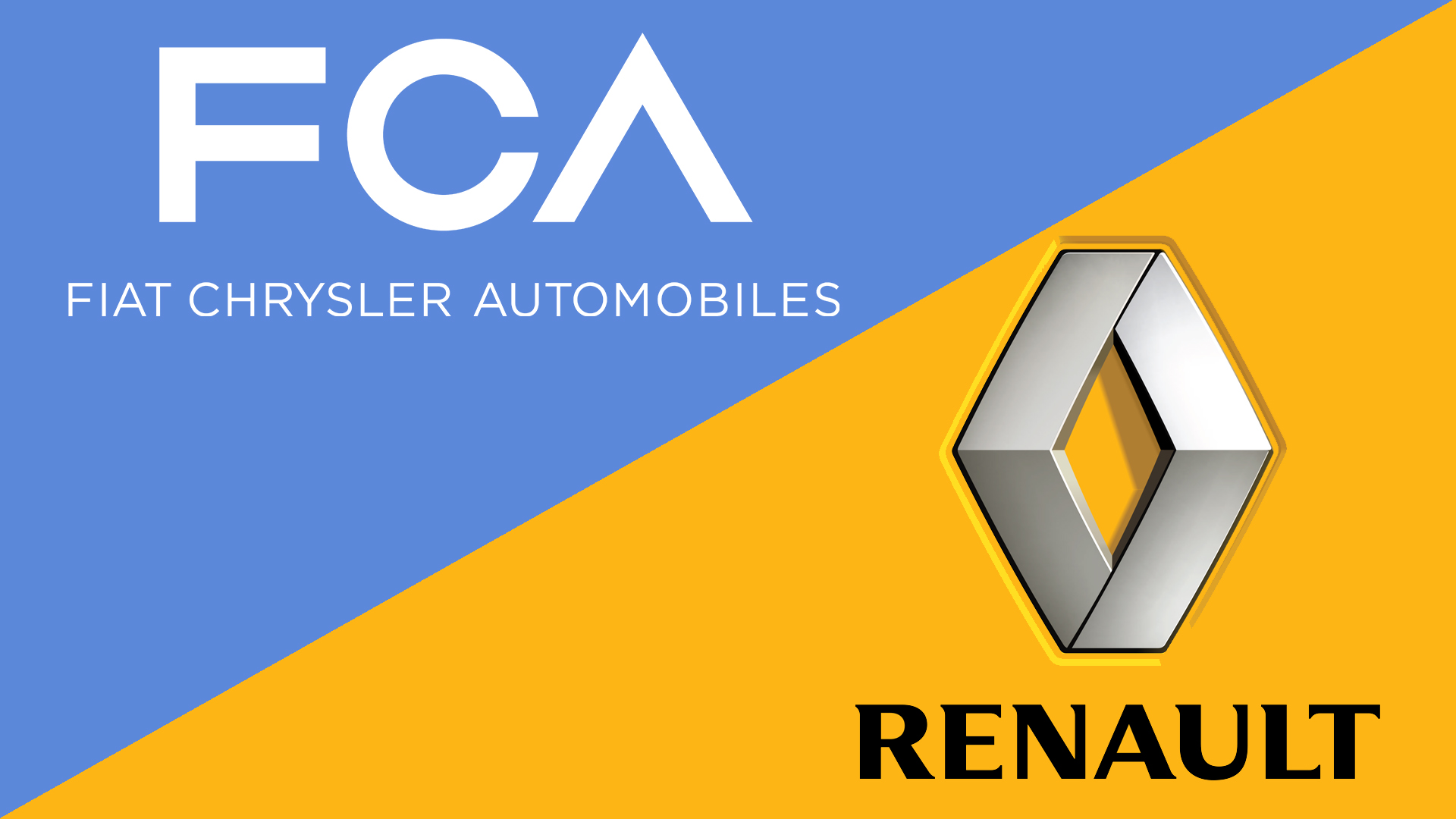

We may earn revenue from the products available on this page and participate in affiliate programs. Learn more ›
Fiat Chrysler announced on Monday that it will look to pursue a $35 billion merger with French automaker Renault.
The merger would mean the creation of the world’s third-largest automaker by sales, displacing Daimler from its current position behind Toyota and Volkswagen with an estimated 8.7 million deliveries. By combining their vehicle offerings, both automakers would effectively broaden their portfolios, creating a blanket of automobiles which cover every market segment from budget-conscious mainstream cars to luxury automobiles. Jeep, Ram, and commercial brands would also be included as part of the merger.
FCA’s merger proposal is far from a surprise—the move has been a long time coming, but the announcement of Renault as a potential suitor is a bit of a shock. As part of the automaker’s proposal, the brands would split ownership down the middle between FCA and Renault shareholders, something which FCA says will create a “balanced governance structure” between the organization by maintaining an independent board of directors.
Perhaps the strongest hand in the deal is the government of France, a player which maintains a 15 percent stake in Groupe Renault. France will be “particularly vigilant regarding employment and industrial footprint,” a Paris official told Reuters following the announcement, later adding that the merger must also safeguard the automaker’s existing alliance with Nissan, which Renault has more than 43 percent ownership in.
In a separate statement, Renault confirmed receipt of the FCA proposal and notes that after reviewing the offer, its board will “study with interest” the merger’s benefit with regards to the existing Renault-Nissan Alliance.
As an unintended consequence, the consideration of a merger with FCA has renewed concerns over the sustainability of the Renault-Nissan Alliance. Earlier this year, the Alliance was tested after Carlos Ghosn (former CEO at Renault, as well as board chairman at both Nissan and Mitsubishi) was arrested after being suspected of misusing company funds. No partner in the Alliance has issued a statement regarding if the proposed merger would affect the partnership in any way.
“I have huge respect for Nissan and Mitsubishi, and their products and businesses,” wrote John Elkann, chairman of FCA, in a statement to Nikkei. “Our proposed merger with Renault will create the potential to build a global partnership with all three of these great companies during this period of unprecedented transformation in our industry.”
A preliminary cost analysis by Fiat Chrysler shows that the merger would generate more than $5.6 billion (5 billion euros) in annual savings thanks to existing Alliance synergies. Combined with the statement by Elkann, FCA is perhaps subtly indicating that it may be in favor of keeping the partnership intact. No plant closures are expected as a result of the acquisition.
